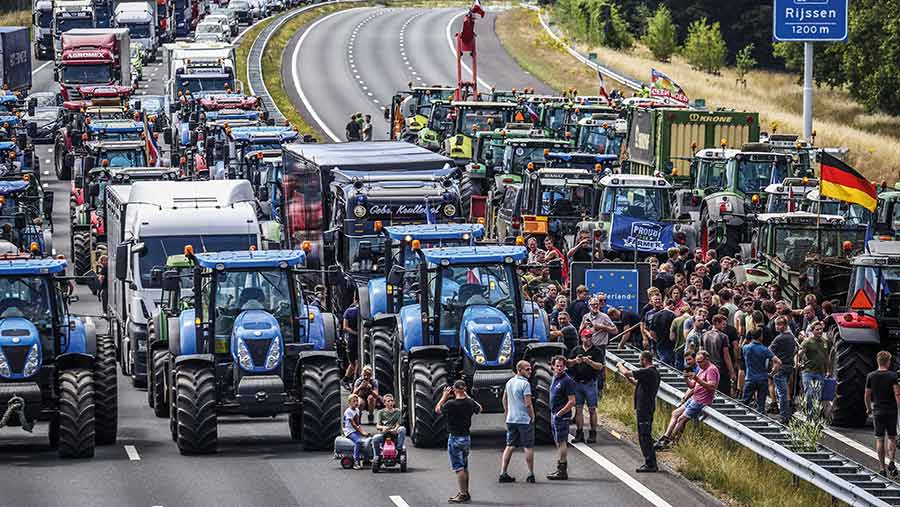Dutch farmer protests derail emissions plan
 © ANP/Alamy Stock Photo
© ANP/Alamy Stock Photo The Netherlands government has suffered a setback in its bid to impose tough emissions targets on the Dutch agricultural sector.
The man charged with responsibility for the legislation – agriculture minister Henk Staghouwer – has resigned, admitting he was not the right person to push the policy through and had failed to get farmers on board.
That admission looks to be a huge understatement. The proposed £22bn programme to halve nitrous oxide and ammonia emissions by 2030, has been met with a violent backlash from farmers that has at times brought the country to a standstill.
Farmers believed hundreds of businesses and thousands of jobs were under threat and took to the streets when proposals passed through the Dutch parliament in July.
See also: Dutch farmers organise mass protests in face of farm closures
Amsterdam and other cities were gridlocked when farmers torched straw bales, spread slurry across streets and let off fireworks.
In some cities, dozens of farmers were arrested after rallies of up to 40,000 protesters descended into running battles with police.
Other protests blocked motorways as columns of slow-moving tractors descended on the Dutch parliament buildings in The Hague.
Protests have also spread to other EU countries, with thousands of farmers showing their solidarity with the Dutch.
Progress
Although the Dutch government has vowed to press on with the policy, Mr Staghouwer’s resignation could slow its progress, according to political commentators in the Netherlands.
A government-appointed negotiator, drafted in to help Mr Staghouwer forge an agreement with farmers, has also so far failed.
Deputy prime minister Carola Schouten will now take up the cause of trying to convince farmers to accept the policy.
But the Farmers Defence Force (FDF), one of the key protest groups, said it felt no more progress would be made in talks.
A statement by the FDF branded Ms Schouten “invisible”, with no plans and no vision.
Meanwhile, farming union LTO Nederland has continued to press for the policy to be dropped.
The union argued the Dutch food sector was being singled out while other EU member states faced lesser controls.
It also highlighted that only limited reduction targets were being imposed on other polluting industries such as aviation, construction and transport.
